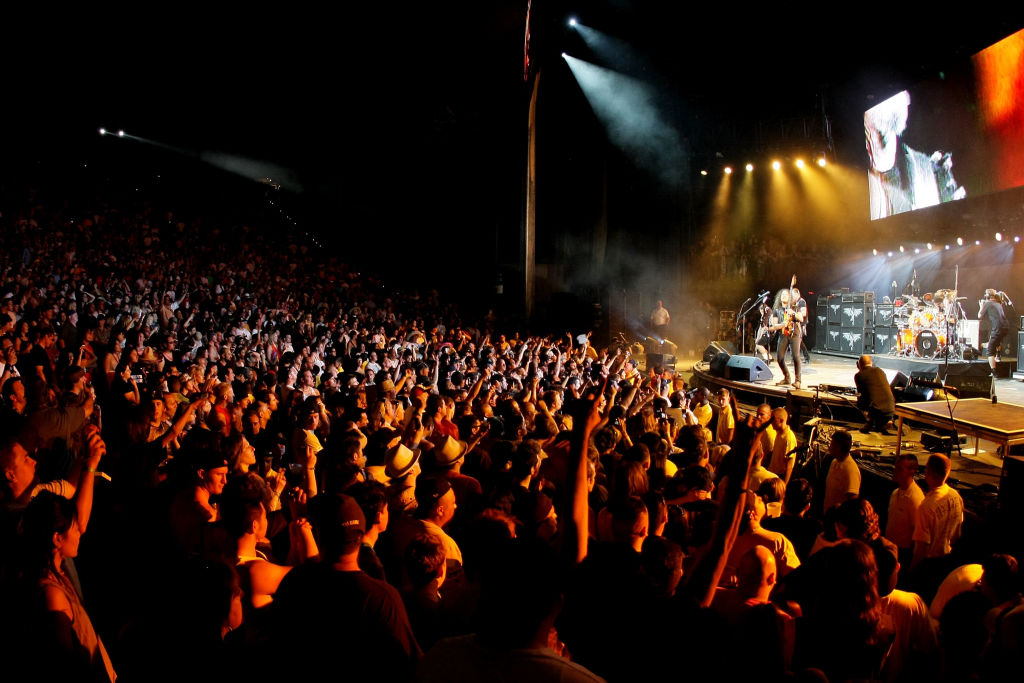The year the music died? What energy bills and recession will mean for gigs

Gigs have always been a great way to escape from the toils of everyday life – a few friends, usually a few drinks and great bands.
But, what does a live music scene look like once you factor in spiralling inflation and rocketing energy bills for venues and consumers who can no longer afford to buy the tickets?
Founder and CEO of Music Venue Trust (MVT), a registered charity which acts to protect, secure and improve the country’s grassroots venues, Mark Davyd has a pretty good idea of this struggle.
Representing over 950 venues across the UK, Davyd warned that we are heading into a period of complete uncertainty for gigs as a result of the energy crisis and slowing consumer demand to spend money on live entertainment.
Davyd cited one unnamed MVT member who had seen their bills rise 1800 per cent after agreeing a new energy tariff – a story he said was not uncommon across the sector.
“The problem is that we are already in a high risk economic model with tight margins,” he told City A.M. “Ultimately there will have to be less shows as we head into the winter”.
But it seems we don’t probably don’t even have to wait until the depths of winter to hit to see this downturn.
According to exclusive data shared with City A.M., MVT said capacity at grassroot events is already down 10 per cent compared to pre-pandemic levels, and the average number of events slumping from 4.2 a week to 3.5.
Overall, the music charity estimates that there were 49,000 fewer events in 2022 compared to 2019, with over 900,000 lost opportunities for musicians and crew.
“I’ve been a touring musician for nearly 10 years and have continued to see the decline in the amount of live music venues, especially the grassroot level ones,” British indie musician Tom Speight, who has over 200m streams on Spotify, told City A.M.
“It’s so important when you’re starting out you have somewhere to play and it’s becoming increasingly harder for newer artists to build up a live following.”
Taxman deaf to the music
That matters not just for the artists – but for the UK economy too.
The country’s steady flow of new, worldwide music acts has always been a boon to the country’s GDP and its soft power.
The declining number of shows represents a £236m loss across the nighttime economy, according to MVT data, impacting local pubs and restaurants, who normally cash in on avid music fans.
So although Davyd welcomed the government’s Autumn budget, which confirmed business rates for the retail, hospitality and leisure sectors would be extended from 50 per cent to 75 per cent from April 2023, he warned that a much bigger fix would be needed for the long term durability of the sector.
“The UK has the highest level of premises taxes on grassroots music venues in Europe. This must change for our live music industry to remain competitive,” he said, adding that the issue of high VAT rates on ticketing makes events even pricier for gig-goers and harder for venues to get people through the door.
He called on the government to bring forward a sector-wide review for grassroot venues: something that has been put on hold since it was first promised by the government at the start of 2020.
Until then, the reality is that small venues have two options: push these spiralling costs onto customers, put on fewer shows, or simply shut up shop.
But it’s not just smaller venues who have to worry. Even the boss of the Royal Albert Hall warned of a “terrifying” future, where energy bills are set to triple to £1.5m a year, throwing its 800 events-a-year calendar into question.
UK Music chief Jamie Njoku-Goodwin has called the energy crisis an “existential threat” to the sector as we know it, raising huge question marks about what will happen next.
For instance, could it mean that gigs will be stripped back affairs, with venues trying to skimp on costs to breakeven?
Auro Foxcroft, who runs music venues in Shoreditch Village Underground and Hackney’s Earth, thinks not.
He told City A.M. that there’s not much music venues can actually cut back on – people pay for good lighting, sound and a comfortable setting.
As a result, he said the current climate makes many shows “borderline unviable” and the pressure on bigger artists and promoters even more immense.
“Top artists demand greater elements to show, so venues are in a bind of the prices going up but they can’t cut these features out,” Foxcroft said.
He explained the reality was that venues would need to open themselves up for more corporate events to “balance their books”: an opportunity for the City and indie musicians to perhaps for once sing from the same songsheet.